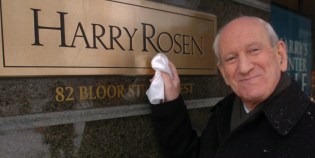There is a disconnect between women’s values and their buying behaviour – and that needs to change, according to Diane Ridgway-Cross, EVP and managing director of Marketel’s marketing-to-women division, MarketELLE.
That was a key point Ridgway-Cross made during her TED talk on “conscious consumerism” at the sold-out TEDx Montreal Women conference on May 30. She spoke to Marketing about why consumers and companies need to be more responsible, and the role marketers can play in affecting change.
How do you define conscious consumerism?
It’s about being very mindful about the products we buy, the brands we choose and the companies we buy from. It’s as simple as that.
Why do you think conscious consumerism is so important today?
There are so many things we have to change in this world, whether it’s global warming, animal welfare issues, human rights issues, women’s rights issues, food safety issues, you name it. And there’s no way that governments can legislate all of that. So it’s going to be up to companies to do the right thing. And it’s up to us as consumers and us as women… to reward the ones that are doing the right thing and to hold accountable those who aren’t.
What role do women play in this?
All of the data suggests that three quarters of all purchases are either made or are heavily influenced by women and we control $20 trillion globally. Obviously we wield a tremendous amount of “power of the purse” and with that comes not just the opportunity but the responsibility to do something. In a world of social media amplification and sharing, transparency or expected transparency from companies, and having access to information, we really do have to start acting on our belief systems.
So what should women do specifically?
Certainly become more well informed. There are more websites than ever, there are apps cropping up left and right… the amount of tools that are available is growing quickly. We have to be more knowledgeable about what we’re buying and the companies we’re buying from, and then we have to act on it. It’s easy for me to say “I’m completely against sweatshops and child labour, but oh, this shirt from a retailer that I know is having issues with sweatshops, is so cute.” And we just can’t do that anymore. We’re at a time where social consciousness has to start to take a bigger lead…
[In MarketElle’s qualitative research], women could readily list companies whose policies they don’t condone and are officially boycotting. I coined the phrase “girl-cotting” rather than boycotting… There’s a huge opportunity to become more educated and more active on our beliefs.”
This puts a lot of onus on the consumer. Shouldn’t companies take the lead?
Absolutely, and now more than ever, they are. [In my TED talk], I talked about Tom’s Shoes and L’Oreal, which is known as an amazing global women’s employer, The Body Shop… companies that have stepped up to do the right thing. More and more companies are reporting on corporate social responsibility or on environmental issues. So they are [taking the lead], but they’re also in it to be in business… They do need to make a profit. There are certain things that are hard to navigate, but that doesn’t mean we can’t start having a much more vocal conversation about it.
Your own study found that the top three brands that women love are Tim Hortons, Walmart and Costco. How realistic is it that people will start to meaningfully change the way they shop, when clearly they like low prices and convenience?
It was very interesting when we fielded this study because we looked at all of the data and it cut across all socio-economic strata. There was a hypothesis going in that this was a very elite point of view—people who have the means to be able to make these decisions. But the reality is, that’s not it. Everybody wants to do the right thing and expects more and more from companies.
What was interesting about the brands that won and lost last year, in some instances, we had companies that landed both on women’s “love” list and on other women’s “loathe” list. Walmart, for example, is a hero brand to lots of women, to moms who are making ends meet, or to the average middle-class family. But, there’s the other side that says “I don’t agree with some of their workplace policies, some of their sourcing policies, etc.” But Walmart is also aggressively working to try to continuously improve. And as I said, everybody is in a business. We have to give them credit for what they’re doing, but still hold them accountable to do even more.
What role does the marketer have in all of this?
The marketer has an important role in pushing their company to be transparent, to understanding that this is important to consumers and only becoming increasingly more important. When you’ve got an opportunity to help people be more conscious consumers, that’s the right thing to do. And certainly, if you’ve got an advantage because of how you’re operating, then that is a lever to wield and to talk about with the consumer.









